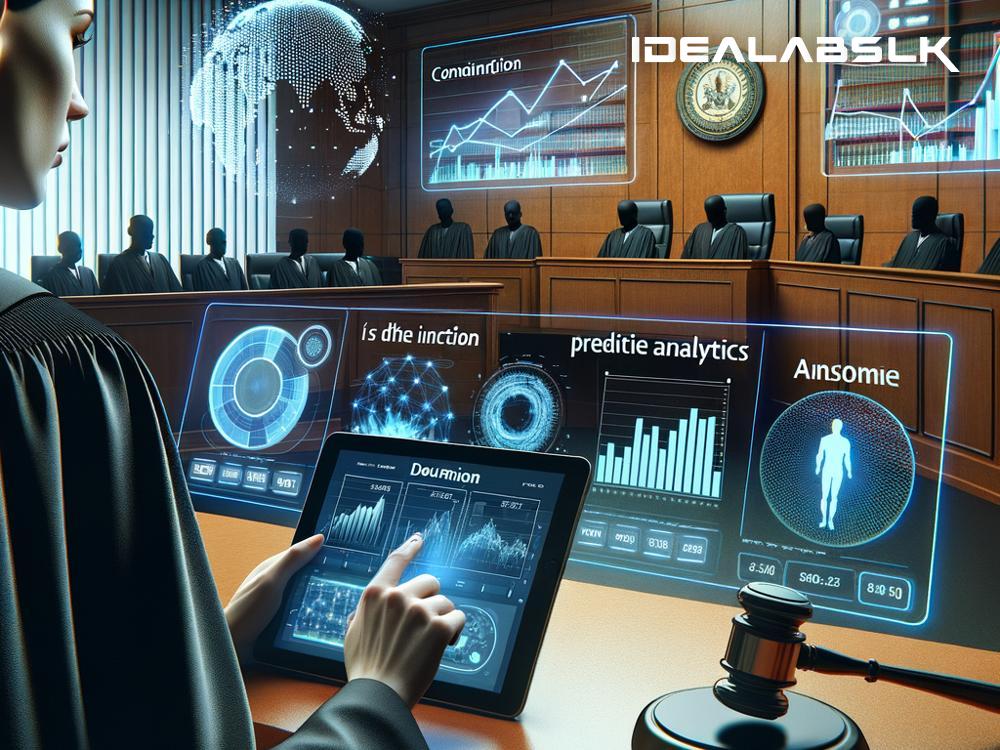Predictive Analytics: Shaping the Future of Legal Outcomes
The legal world is no stranger to evolution. From stone tablets to paper transcripts and digital documents, the way laws are practiced and justice is served has continually transformed. Now, we stand on the brink of another revolution that could redefine the legal landscape: predictive analytics. This technology, which analyzes past data to forecast future events, promises to reshape legal cases as we know them.
What is Predictive Analytics, Anyway?
In simple terms, imagine you're trying to decide whether to carry an umbrella based on the weather forecast. You look at patterns: if it's been raining for the last three days and the sky is cloudy, you'll probably decide to take one. Predictive analytics works similarly but applies more complex algorithms to huge sets of data to predict future trends or outcomes.
In legal cases, this could mean analyzing data from past court decisions, judge rulings, or even patterns in jury behavior to anticipate the outcome of a case. By examining thousands of similar cases, predictive analytics can help legal professionals gauge the likelihood of different verdicts, making it a potent tool in their arsenal.
How Predictive Analytics is Set to Change the Legal Field
1. Smarter Legal Strategies
With access to predictive analytics, lawyers can craft more informed strategies. If a lawyer knows that cases like theirs have a 70% chance of favoring the claimant under certain conditions, they can adjust their approach, negotiate better, or advise their clients with more confidence about going to trial or settling.
2. Efficient Legal Research
Legal research can be like finding a needle in a haystack. Predictive analytics can make this search faster and more accurate by pinpointing relevant cases, laws, and precedents out of the millions available. This not only saves time but could also uncover patterns and connections that might be missed by the human eye.
3. Risk and Cost Assessment
Predictive analytics can help both lawyers and their clients understand the risks and potential costs involved in pursuing a case. This technology can forecast the chances of winning and the expected financial implications, enabling clients to make more informed decisions about proceeding with their case.
4. Personalizing Legal Predictions
One of the most groundbreaking aspects of predictive analytics is its ability to tailor predictions to the specifics of a case, considering factors like the legal jurisdiction, the judge's historical rulings, and even the opposing counsel's track record. This level of personalization means that predictions become more accurate and relevant for each case.
5. Judicial Decisions and Sentencing
Judges can also benefit from predictive analytics. By analyzing data on past rulings under similar circumstances, predictive analytics can help ensure that sentences are consistent and fair. However, it's crucial to approach this application cautiously to avoid any biases in the data from influencing justice.
Concerns and Ethical Considerations
While the benefits of predictive analytics in the legal field are abundant, they do not come without concerns. The primary worry is about the accuracy and bias within the data. Historical legal decisions may reflect inherent biases, and using this data without careful scrutiny could perpetuate these injustices.
Moreover, there's the fear that over-reliance on predictive analytics could reduce the human element in legal decisions, making them seem cold and detached. The law isn't just about data and statistics; it's also about context, empathy, and justice. Balancing technology with the human aspect of law will be a challenge for the future.
Looking Ahead
Predictive analytics is not a crystal ball. It won't predict legal outcomes with 100% accuracy, but it does offer a fascinating glimpse into the future, where data-driven decisions could dominate the legal landscape. As we step into this future, it's vital to navigate the balance between embracing technological advancements and upholding the principles of justice, fairness, and equity.
As technology continues to evolve, the legal field must adapt, ensuring that predictive analytics serves as a tool for enhancing the practice of law, not undermining it. The future of predictive analytics in legal cases is bright, but it is up to legal professionals, technologists, and policymakers to wield this tool wisely, ensuring it enhances justice rather than detracts from it.
In essence, predictive analytics is set to transform the legal field, offering new insights and efficiencies. But as we harness its power, we must tread carefully, ensuring it serves to support and not replace the nuanced, human-centric decision-making that lies at the heart of the legal system.

